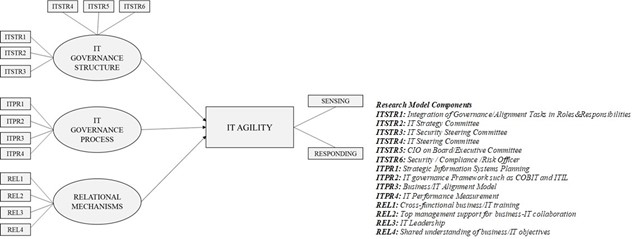Ph.D. Candidate: Burçin Sarı
Program: Information Systems
Date: 22.05.2024 / 13:00
Place: A-212
Abstract: As Information Technology (IT) budgets continue to rise and IT's centrality in businesses grows, effective IT governance becomes crucial for organizations aiming to swiftly respond to environmental shifts and seize emerging opportunities. This study investigates the relationship between IT governance mechanisms, particularly relational aspects, and organizational agility. Employing a combined approach, we first review the literature on IT governance, emphasizing relational mechanisms, processes, and structures. Subsequently, we conduct a focus group study with 7 professionals who have 20+ years’ experience in IT to delve into how IT governance influences IT agility in the context of market dynamics. Building on these insights, we conduct a survey to explore the impact of IT governance on IT agility further by collecting data from 225 companies which operate in Türkiye and USA. Our findings show the significance of relational IT governance mechanisms in enhancing IT agility, highlighting its pivotal role in responding to business environmental changes.
Moreover, as organizations expand, centralizing IT governance emerges as a strategy to enhance business processes’ effectiveness and efficiency. However, the efficacy of this approach remains uncertain. We address this by conducting semi-structured interviews with 11 senior experts in a large technology organization. Our analysis suggests that rigid adherence to complete centralization or decentralization proves suboptimal. Instead, a hybrid approach, which is combining high-level centralization with tailored options for business units, emerges as a more acceptable solution.
This study contributes insights into effective IT governance strategies and centralization approaches, offering practical guidance for organizations seeking to govern IT effectively while fostering agility. The managerial implications and future research directions outlined in this thesis offer guidance to professionals and scholars seeking to optimize IT governance practices.
